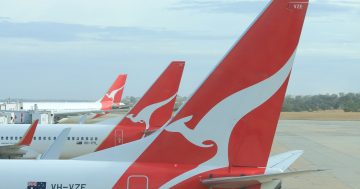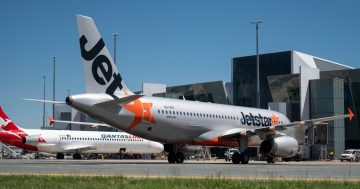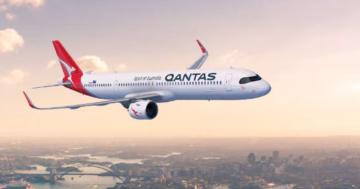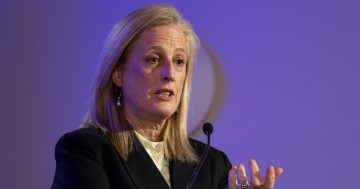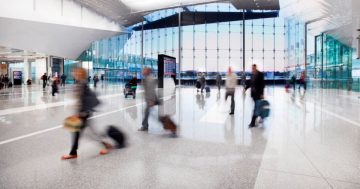Matt Johnson* says consumers have been left reeling from flight cancellations, event postponements and price gouging due to the COVID-19 pandemic.
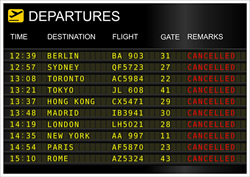
Photo: Sablin
The coronavirus pandemic is turning day-to-day life in Australia on its head, with consumers left reeling from a flurry of flight cancellations, event postponements and price gouging.
As the total number of Australian cases soars above 600, businesses across the country are responding to the unfolding public health crisis in accordance with the Morrison Government’s advice.
So, what rights do consumers have in these unprecedented times?
In most cases, they can take steps to get their money back.
What if your flight, cruise or overseas tour is cancelled?
Thousands of Australians’ travel plans were thrown into disarray after Qantas and Virgin Australia announced they would be grounding their international fleets, after Prime Minister, Scott Morrison advised against any overseas travel.
As of 9 pm on 20 March, non-residents were also banned from entering Australia.
Both carriers have suspended all overseas flights from late March, with Qantas not expecting planes to return to the skies until late May, and Virgin flagging mid-June as its earliest return date.
More international airlines are expected to follow suit, as more countries may soon move to close their borders.
The reason for the cancellation is important
According to the Australian Competition and Consumer Commission (ACCC), all travellers affected by Qantas and Virgin’s decisions should be entitled to some form of remedy.
“If your travel is cancelled, the ACCC expects that you will receive a refund, a credit note or voucher, in most circumstances,” the Commission wrote on its website.
Qantas told customers with existing bookings who are second-guessing their domestic or international travel plans that they can cancel their flights for a 12-month travel credit voucher valued at an identical cost.
If a traveller’s plans are impacted by a lockdown — for instance, in Italy — the procedure to recover airfares or hotel booking costs is murkier.
“If the event, flight or travel service is cancelled due to government restrictions, consumer rights under the consumer guarantees may be impacted,” the ACCC said.
“In these situations, consumers may be entitled to a refund under the terms and conditions of their ticket, or potentially may make a claim under a travel insurance policy.”
Flight Centre said they are “happy to offer our customers the option to either rebook their travel, alternatively, we can place the value of their booking (less supplier fees) into a credit for travel within 12 months of cancelling”.
But many basic travel insurance policies may not cover cancellations as a result of an unexpected public health crisis such as the COVID-19 contagion.
What if a concert is cancelled?
Already the outbreak has prompted the cancellation or postponement of major Australian events such as the Australian Formula 1 Grand Prix, Byron Bay’s Splendour in the Grass music festival, and Dark Mofo in Tasmania.
Affected ticket holders should in most cases be able to recoup their money or receive a gift voucher towards the next year’s event.
But as government restrictions on the size of mass gatherings become more stringent, the ACCC cautioned consumers may encounter difficulty seeking a refund if the Coalition declares a lockdown.
The Commission said the best advice is to contact promoters directly for the best advice on remediation and urged businesses to treat consumers fairly.
However, if a concertgoer decides not to attend due to anxiety over the coronavirus outbreak, they may not be entitled to a refund as it could be considered a “change of mind”.
Those who were planning to travel interstate for events should consult their travel insurance before contacting travel agents or hotels for advice on compensation.
What if you see anyone price gouging?
Shoppers on social media have shared their grievances over independent grocers and pharmacies attempting to profit from the scarcity of essentials like toilet paper and hand sanitisers.
Unfortunately, the ACCC says consumers have little recourse if they see a business marking up prices in response to recent panic-buying.
But a business could breach Australian Consumer Law if they manipulate prices for products “critical to the health or safety of vulnerable consumers” such as medicine, or if they mislead customers over the reasons behind a price rise.
Despite the limited legal protections, consumer watchdog Choice is encouraging consumers to alert it if members of the public are price gouging stockpiled products on online forums such as Facebook Marketplace, eBay or Gumtree.
* Matt Johnson is a finance journalist at The New Daily. He tweets at @matte_johnson.
This article first appeared at thenewdaily.com.au/finance.


